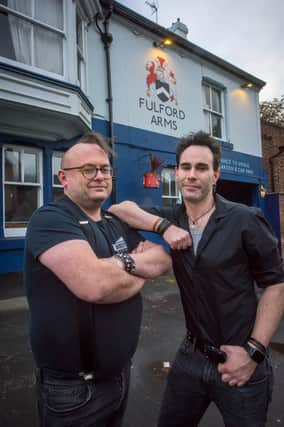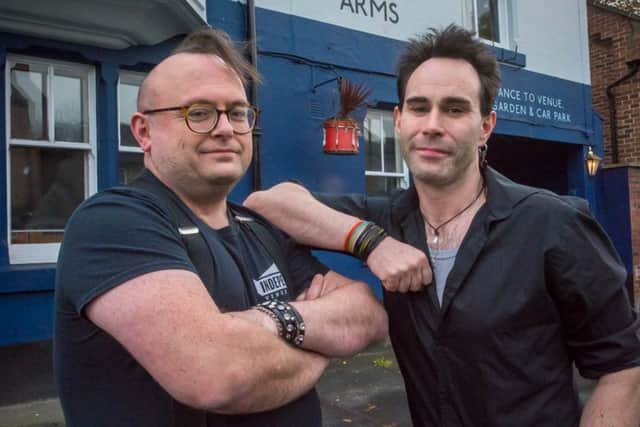"Every show has a cost": what it’s like to run a grassroots music venue


Chris Sherrington owns The Fulford Arms, a grassroots music venue in York, and is regional coordinator for the Music Venue Trust. Here, he writes about the joys - and difficulties - of working in the industry
If life-changing moments could be exchanged for currency then I would be rich indeed.
Advertisement
Hide AdAdvertisement
Hide AdCreating memories, standing shoulder to shoulder with others as hearts swell and the music washes over an audience.
That lyric that was written just for you but which somehow touches the hearts of everyone in the room. If we could bottle that feeling then venues such as mine would be safe forever. Sadly however my landlords and suppliers won’t take payment in dreams or inspiration, which is probably a good thing as the VAT would be messy.
But for each of the 250 shows that we hosted last year, the thousands of artists supported and each “priceless” moment as crowds of people sang, danced, moshed and forgot their everyday worries, there is a cost. Not just to pay the underpaid artists and production teams delivering amazing gigs or the promoters and bookers curating these nights, definitely not paying for the staff or managers working two or more jobs, jumping from lighting desks to bars to cleaning up at 1am.
Tickets rarely cover the individual show costs, yet alone the ever increasing running costs of the venue. Rents, rates, utilities, security, staffing and licensing are only the start. Venues become more and more reliant on bar sales, something which itself threatens programming and youth development. The tribute audiences can prop up the bar but that next young upcoming indie band is cradling half a Coke for the entire night. And that is OK. But grassroots music venues rarely see that return as labels and record deals get involved and are thankful if they do.


Advertisement
Hide AdAdvertisement
Hide AdDuring the last few months the importance of culture to our modern society and the threat to many of its community and historic venues has been thrust into the limelight - a word from the stage, itself highlighting the impact that arts and music have on our language and everyday life.
The announcement in early July of a £1.57 billion investment to protect Britain’s world-class cultural, arts and heritage institutions, which is still yet to be delivered, came about as a direct result of the call from across the industry, topped off by the #LetTheMusicPlay campaign shows the importance of culture in our lives.
It also highlights the financial strain that these spaces find themselves in. However, for grassroots music venues in particular, it is not a new situation that they find themselves in. For years these spaces have been teetering on the brink, straining under the high costs of rents, licences and production costs, struggling due to a lack of recognition from both public spending purses and the industry they prop up and being hit by dwindling income and customer spend in a time of austerity.
We often talk of how it’s “a labour of love” - industry jargon for “it’s worth doing but you don’t see the money”. Watching a band play their first stumbling show, as their family and friends watch proudly on, through to seeing them develop into million-streaming, festival-headlining, platinum selling artists provides some reward. It definitely shows the importance of these spaces to our cultural economy and the hundreds of thousands of jobs and billions to the economy each year.
Advertisement
Hide AdAdvertisement
Hide AdTBut these spaces are key to our communities, from youth development to supporting the underprivileged. They are key to our economies as for every £1 in turnover directly generated by the arts and culture industry, an additional £1.24 in output is supported in the wider economy.
But most importantly they are key to our spirits as the places where inspiration and music raises us up from our daily lives.
While we continue to work on being able to bottle that, for the moment these spaces need recognition, support and to be able to do what they do best - soundtrack your lives.
* This article is part of The Show Must Go On, JPIMedia's campaign to support live arts venues